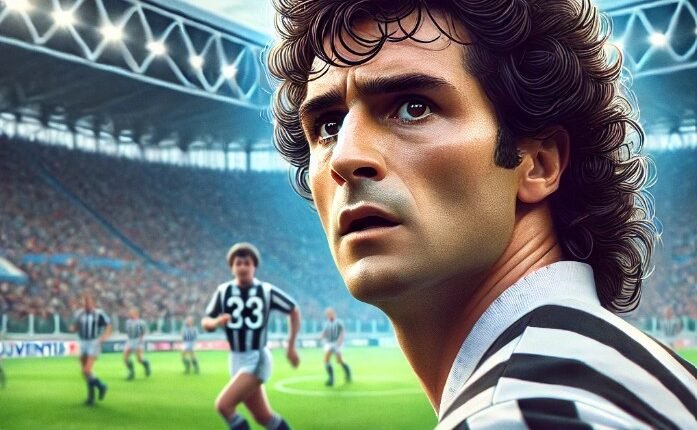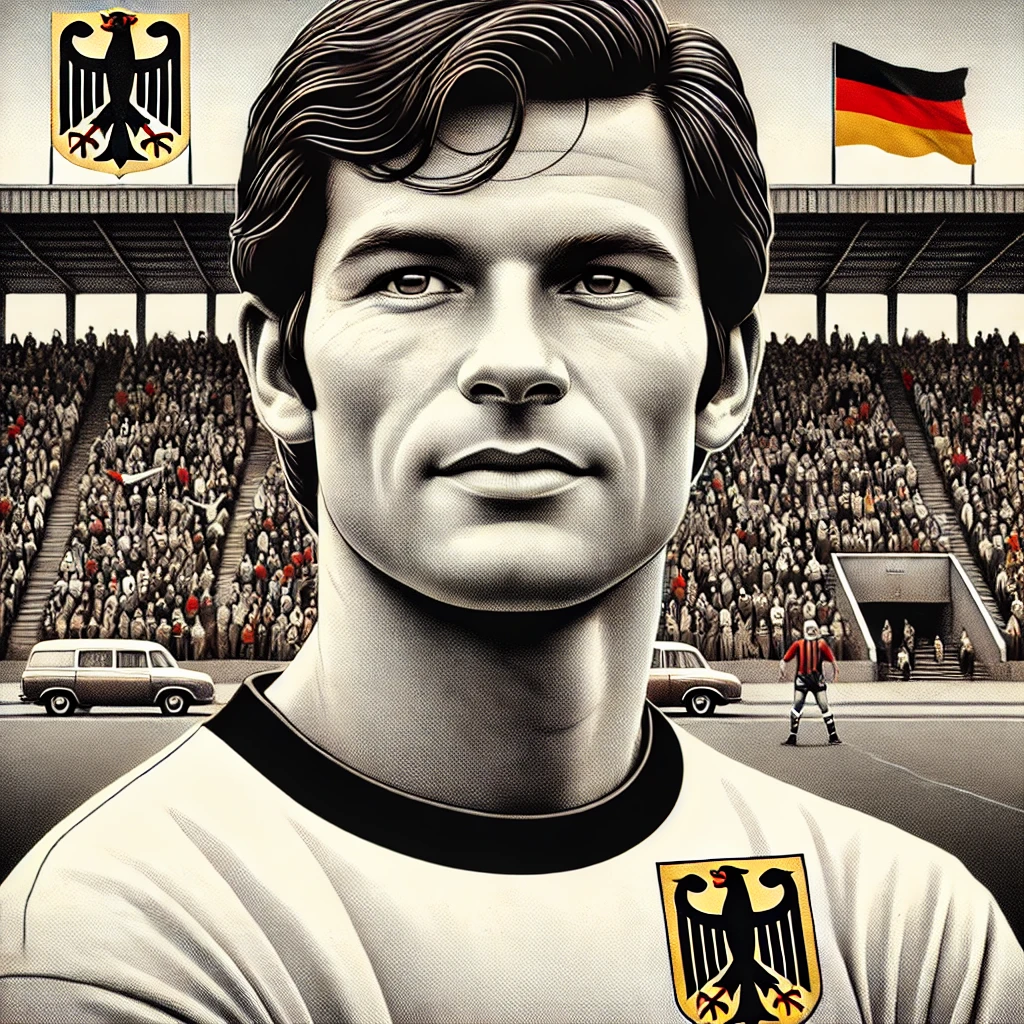Introduction
Michel Platini is a name that has become synonymous with footballing excellence. Known for his elegance on the pitch and strategic thinking off it, Platini’s career has spanned numerous roles: from a prolific player and iconic leader to a powerful administrator. This in-depth exploration traces Platini’s journey from his humble beginnings to his complex legacy, focusing on the qualities that have both defined and challenged his place in the world of football.
Early Life and the Spark for Football
Family Background and Youth
Michel François Platini was born on June 21, 1955, in Jœuf, a small town in the Lorraine region of northeastern France. Coming from an Italian immigrant family, Platini’s childhood was shaped by strong family values, with both his father, Aldo, and his mother, Anna, playing important roles in nurturing his early interest in football. His father, a former amateur player and coach, exposed Michel to the game from a young age, instilling in him a love for the sport that would drive his future ambitions.
Early Steps in Football
Platini’s first formal steps in football came through the local club AS Jœuf. Even in his youth, he displayed remarkable talent, particularly in terms of vision and technical ability. These early years were crucial in developing his trademark style: precision passing, exceptional free-kick accuracy, and a unique calm under pressure. Platini’s drive to improve and his natural flair soon attracted attention beyond his hometown, marking the beginning of his rise in French football.
Professional Career: Clubs and Achievements
AS Nancy: A Star in the Making
Michel Platini began his professional career with AS Nancy in 1972, at just 17 years old. Despite his youth, he quickly became a pivotal player for the team, showcasing his ability to score and create goals from the midfield. In 1978, he led Nancy to victory in the French Cup, his first major title as a professional. His performance at Nancy laid the foundation for his future career and established him as one of the most promising talents in French football.
Saint-Étienne: Building a Champion
In 1979, Platini joined AS Saint-Étienne, a club that was then the powerhouse of French football. Platini thrived at Saint-Étienne, helping the team secure the French league title in 1981. Known for his game intelligence and goal-scoring ability, Platini’s influence at Saint-Étienne extended beyond his playing skills. He became a leader, often orchestrating the team’s play and motivating his teammates. His success at Saint-Étienne cemented his status as a top-tier footballer, drawing attention from some of Europe’s elite clubs.
Juventus: Reaching New Heights
The defining phase of Platini’s career came in 1982 when he moved to Italian giants Juventus. In Italy, Platini reached his peak, leading Juventus to two Serie A titles, the European Cup Winners’ Cup, and the prestigious European Cup in 1985. His three consecutive Ballon d’Or awards from 1983 to 1985 are testament to his dominance and consistency on the field during this period. Platini’s time at Juventus saw him become the top scorer in Serie A for three seasons, an extraordinary feat for a midfielder. His playing style—marked by finesse, intelligence, and scoring prowess—captivated fans and solidified his legacy as one of the game’s greats.
International Career with France: A Leader Emerges
Euro 1984 Triumph
Platini’s international career with the French national team is best remembered for his performance in the 1984 UEFA European Championship. Serving as captain, he led France to their first major international trophy in an unforgettable tournament on home soil. Platini scored nine goals in just five matches, a record that remains unmatched in a single European Championship. His remarkable hat-trick against Belgium and his crucial goals in the semi-finals and finals secured his place in history as one of France’s most influential players.
World Cup Performances and Near Triumphs
Although Platini never won a World Cup, he left an indelible mark on the tournament. He led France to the semi-finals in both the 1982 and 1986 World Cups, showcasing his playmaking skills and resilience. The “Magic Square” midfield he formed with teammates such as Alain Giresse, Jean Tigana, and Luis Fernández was one of the most formidable and skillful units of its time, blending creativity with tactical discipline. Despite falling short of ultimate glory, Platini’s performances on the world stage solidified his reputation as a global football icon.
Retirement and Transition to Football Administration
Entering Football Governance
After retiring as a player in 1987, Platini’s involvement in football did not wane. Instead, he shifted focus to football administration, determined to contribute to the sport off the pitch. Platini played a significant role in organizing the 1998 FIFA World Cup held in France, a tournament widely praised for its success and smooth execution. His work on the committee showcased his administrative acumen and deep understanding of the game’s global structure.
UEFA Presidency: A New Challenge
Platini’s career took another leap in 2007 when he was elected president of UEFA, Europe’s governing football body. As UEFA president, he championed several reforms, including the Financial Fair Play regulations, which aimed to ensure that clubs operated within their financial means and reduced the risk of debt. Platini also advocated for expanding the European Championship tournament, allowing more teams to participate and increasing the competition’s reach and appeal.
Controversies and Setbacks
While Platini achieved much during his tenure as UEFA president, his time in football administration was not without controversy. In 2015, he was banned from football-related activities following an investigation into alleged financial misconduct, casting a shadow over his legacy in football governance. Though Platini has denied any wrongdoing, the controversy marked a difficult chapter in his post-playing career, contrasting with the accolades he earned on the pitch.
Platini’s Legacy: Influence and Impact on Modern Football
The Evolution of the Midfield Maestro
Platini’s style and impact on the pitch have had a lasting influence on the role of the attacking midfielder. His unique ability to control games, score goals, and assist from midfield helped redefine the expectations for players in his position. Many of today’s creative midfielders, from Zinedine Zidane to Andrea Pirlo, cite Platini as an inspiration, illustrating his profound influence on future generations.
Contributions to Football Administration
While his administrative career ended in controversy, Platini’s reforms—particularly Financial Fair Play—have left a lasting imprint on the business of football. By encouraging clubs to operate responsibly, Platini aimed to make European football more equitable and sustainable, laying the groundwork for future administrative changes. Though opinions on Financial Fair Play remain mixed, it was a bold step towards balancing football’s financial and competitive aspects.
A Complex Legacy
Michel Platini’s life and career encapsulate both triumph and complexity. His contributions to football as a player, leader, and administrator have earned him a place in the pantheon of football legends. Yet his administrative controversies serve as a reminder of the challenges and pressures that accompany high-profile roles in sports governance. Platini’s legacy, therefore, is multifaceted: he is celebrated for his on-field brilliance, respected for his administrative vision, and remembered for the lessons his journey offers about the complexities of football leadership.
Conclusion
Michel Platini’s journey through football is a tale of passion, ambition, and, ultimately, legacy. From his early days in Jœuf to his peak as one of the world’s greatest players and his transformative role as UEFA president, Platini’s influence on the game is unmistakable. Despite the challenges he faced, his career offers invaluable lessons about resilience, the pursuit of excellence, and the intricacies of football both on and off the pitch. Whether remembered for his goals, his leadership, or his vision for the sport, Michel Platini’s name remains forever etched in football history as a legend beyond the pitch.









